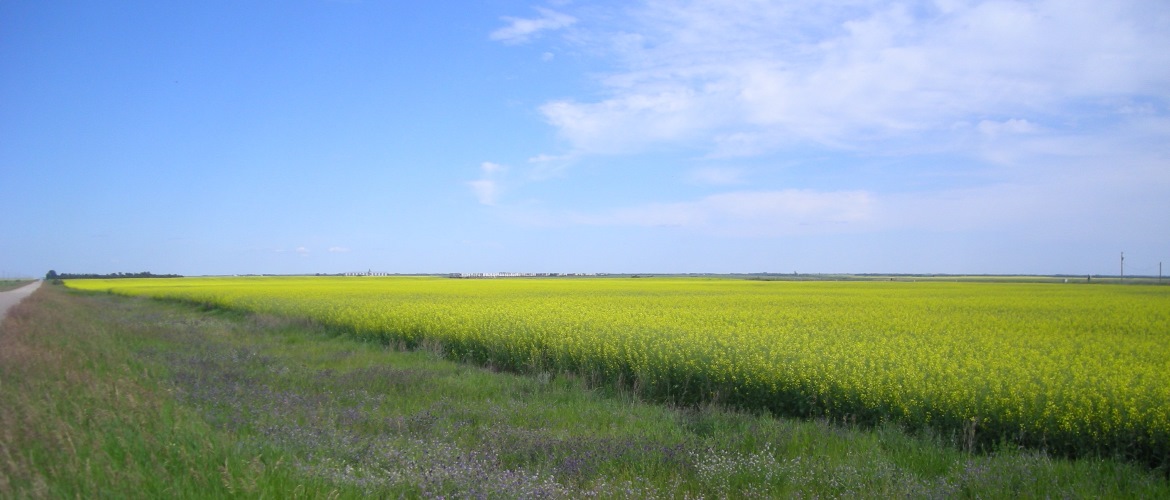Canadian company fuels future of flight
Follow:
A Canadian Trade Commissioner Service fast-track client, Agrisoma Biosciences, based in Gatineau, Quebec, is revolutionizing the jet fuel industry with the world’s first partially plant-powered transatlantic flight.
On September 14, 2018, a Boeing 787 on United Airlines Flight 44 flew from San Francisco, California, to Zurich, Switzerland, on an 11-hour trip. It was a flight indistinguishable from any other of the approximately 2,700 departures from San Francisco that day—except for one thing: Flight 44 was fuelled by 30 percent biofuel made from oilseed developed in Canada.
Agrisoma took the crop from “seed to sky”
to provide the airline industry with a sustainable alternative to fossil fuels. Carinata, a kale-like plant, produces oil-rich seeds that are crushed and refined into jet fuel. The end product has almost 80 percent less carbon dioxide emissions than traditional jet fuel.
Not only does Agrisoma’s Carinata contribute to reducing greenhouse gas emissions, it has a by-product that is a protein-rich feed for livestock. To date Carinata has been used to produce over 20 million litres of sustainable fuel and co-produce more than 22,500 tonnes of high-protein animal feed. This means that farmers growing carinata can have two sources of revenue from the plant.
Jim Carr, Minister of International Trade Diversification, says Agrisoma is an example of world-class Canadian expertise. “This biofuel is another example of Canadian companies at the forefront of environmentally and economically sound solutions to global challenges,”
said Carr. “Innovations like this are poised to reap the benefits of Canada’s expanding market diversification agenda, which is all about taking Canadian innovation to every corner of the world.”
Indeed, the advent of this biofuel parallels Canada’s diversification approach to trade. The biofuel made for Flight 44 was Canadian seed that was grown and harvested in Florida and then shipped to France, where the grain was processed to make oil and animal feed.
Anne Rouleau, a Global Affairs Canada trade commissioner in the Montréal regional office who works in the cleantech sector, says trade diversification is an important part of business development.
“To be a global leader in cleantech, companies need to go international early on and think globally from inception,”
said Rouleau.
The Flight 44 trip follows a successful trans-Pacific Quantas Airways flight earlier in 2018 that was powered in part by biofuel.
"Flight 44 is another milestone for the aviation industry’s move toward crop-based, low-carbon fuels," said Steve Fabijanski, Agrisoma’s founder, CEO and president.
"At over 11 hours, it is the longest transatlantic biojet flight ever undertaken, and with the fuel-efficient Boeing 787, represents the lowest-carbon-footprint commercial flight across the Atlantic. It is our second international biojet flight powered by Carinata, but there are more to come."
The biofuel sector seems poised to take off. Although only five percent of flights are now powered by biofuels, with airlines committed to capping and reducing greenhouse gas emissions, Carinata-based fuels should find friendly skies in their future.
Agrisoma’s leading position in the biofuel industry was made possible by key investors that include BDC Capital, Cycle Capital Management and Lune Rouge, who believed in the company from the start, as well as a more recent investor, Desjardins Capital.
- Date modified:
